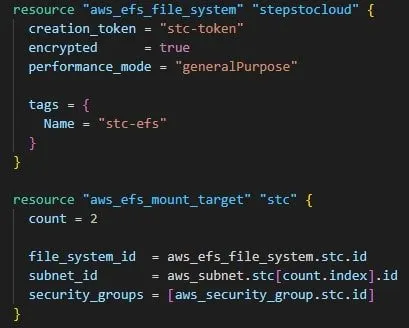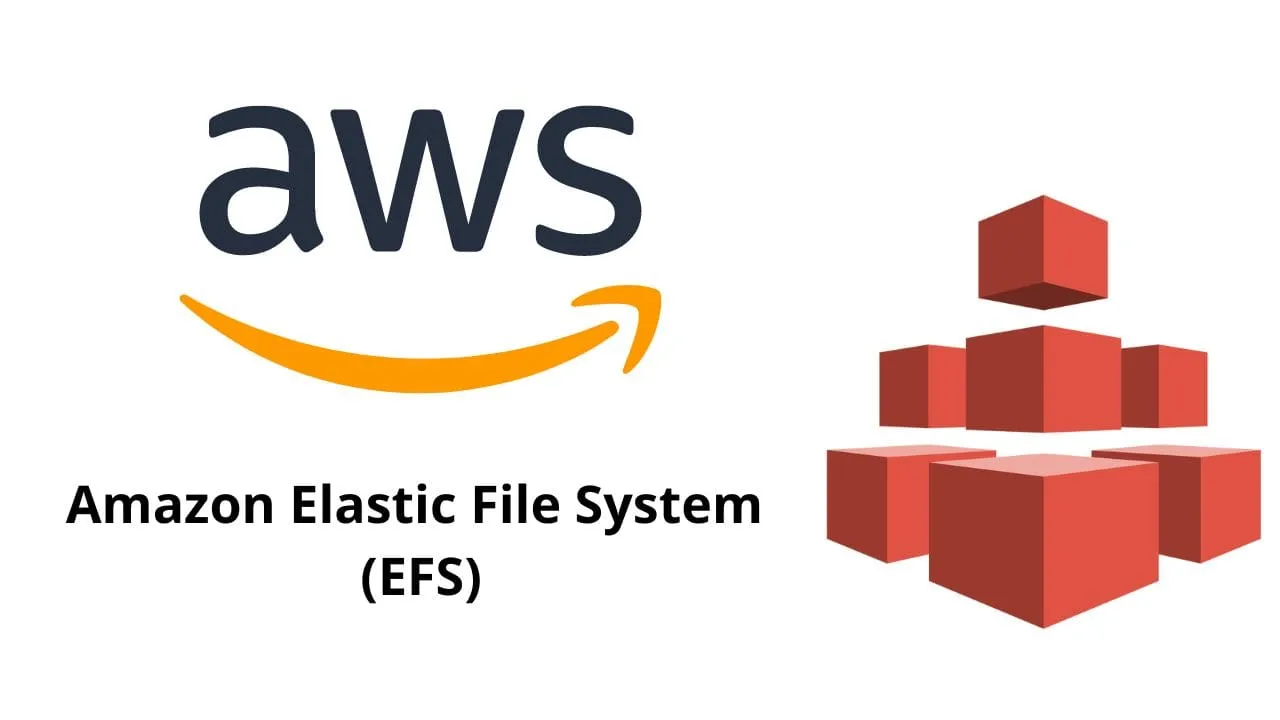Do you want to know how the Amazon Elastic file system works? Then read it here to understand it.
Have you ever imagined sharing files with multiple users simultaneously without a complex and costly storage system that is difficult to build and maintain? Then you must try Amazon Elastic File System (EFS).
Amazon Elastic File System is your ultimate solution that manages your shared file in the AWS cloud storage system and in-house data center servers by connecting them.
You can use Amazon Elastic File System to store Files, Objects, and Block storage in such order Files in AWS EFS, Object storage in AWS S3, and Block storage in AWS EBS to store data in classification.
Explaining Amazon Elastic File System (EFS)
Amazon Elastic File System is a Flexible server-free file storage system that manages your shared file in the AWS cloud storage system and in-house data center servers without interruption and huge data cluttering.
Creating an Amazon Elastic File System using Amazon Web Services Console is effortless. Then, you can easily mound your Virtual Private Cloud to Elastic File System to sort, store and manage your shared data.
Remote-Storage
IT staff can access an existing file system by AWS EFS mounting it on an EC2 Linux, they can create and manage a new file system using the AWS Management Console, API, and SDK.
Supervisors can also identify, access, and remove systems using the Management Console, API, and SDK.
Budget-Friendly Storage
EFS billing depends on the total storage capacity used by the file system service in which your active data shared files are stored; it has a default feature to not cost for inactive files.
You can save ninety-two percent on your billing than other services. It will cost you as low as $0.025 per GB per month for standard storage and $0.0133 per GB per month for one-zone storage.
Amazon EFS provides a variety of storage classes tailored to specific uses.
Among these two major classes are standard storage and one zone storage with frequently used and not frequently used types.
EFS Standard is region-wise storage tailored to supply data across one or more availability zones.
In contrast, EFS One Zone is tailored to deliver data across a single availability Zone with AWS Backup support.
Use Cases of Amazon Elastic File System
The following are the use case performance Amazon Elastic File System offers you.
Efficient Management
Amazon Elastic File System can efficiently manage several applications and work-related storage, including directories, web services, content, heavy data files, media, etc.
It is ideal for managing files that are bigger in size but are in frequent use by users of that facility due to their necessity in their operations.
Adaptable and Flexible Management
Amazon Elastic File System automatically sorts and highlights the files and storage capacity under your usage and expands or contracts automatically as per client needs.
It can measure your file system up to Petabytes and, in continuity, measure the expandability of your current shared files system.
Secured Storage Management
Amazon Elastic File System is secured as it can control network tariff access to shared files using a list of allowed user and security groups on the network.
It also ensures security by encrypting data in transit and the users who have access to them using AWS IAM. It also supports POSIX permission on shared files to maximize your data’s security.
Reasons to Invest In Amazon Elastic File System
Amazon Elastic File System is a popular choice of data storage due to its inexpensive yet efficient service provided by Amazon web services.
Investing in it to protect your company’s valuable data is a profitable option for your company for the following reasons.
1. Storage options as per your requirements.
It provides two types of storage in general, Standard and One Zone, that organize the most common and least commonly accessed data to reduce the cost of storage and management.
You can store shared files, and objects and block storage in a single zone or more than a single zone to make it available as per your business and application requirements.
2. Cost-effective
Amazon Elastic File System is cost-effective as you have to pay as low as 0.025$ per GB a month for standard storage and 0.0133$ per GB a month for one-zone storage.
You don’t even have to pay for files that are less accessible, and it can automatically expand when clients need more storage, and you don’t have to pay anything in advance.
3. Long-lasting availability
Amazon Elastic File System has many automated backups feature that keeps your shared files saved by duplicating them so that your data would be protected in case of any disaster.
Amazon Elastic files are ideal for storing, building, and developing business applications, stimulating games, analytics, and compressing media files due to their efficient handling of large data.
4. Storage capacity
Amazon Elastic File System has the ability to contract when less file space is utilized and can save you money.
It can also expand when the client needs it without extra charges; it can hold up to trillion data bytes, which is impossible within simple building premises.
5. Completely Managed
Amazon web services fully manage Amazon Elastic File System, the client does not have to create a backup for their data, you can create file systems with a few clicks with user-friendly EFS-managed interfaces.
As per your storage selection, shared files are widely available for its users within one or more than one availability zone.
Brands That Use Amazon Elastic File System
The following are the major brands that use the Amazon Elastic File System service to benefit their business.
| First American |
| Fannie Mae |
| Experian |
| Rekor Systems |
| Indegene |
1. First American
First American is a huge insurance and settlement company that deals with selling, buying, recovering, construction, transactions, and various relevant services to its clients.
They chose Amazon Elastic File System to handle their gigantic size data, having been recorded over years and years so they can work more precisely.
2. Fannie Mae
Fannie Mae is a governmental-sponsored Financial Services and financial guidance that is a leader in the home buying and rental market and is one of the trusted businesses in its genre.
They are using Amazon Elastic File for the management of their extremely important files so they will remain protected in case of disasters.
3. Experian
Experian is a Software Manufacturer that over 44 countries that designs applications for data management, smart solutions, and advanced technologies for your business.
They are using Amazon Elastic File to maintain their data quality, efficiency, and accuracy by using this amazing Amazon Web Services storage system.
4. Rekor Systems
Rekor Systems is a kind of System software company in the US that provides intelligent software that works for automobiles, construction, and infrastructure.
They are using Amazon Elastic File for securing, organizing, and managing their data for designing and developing automobiles, construction, and infrastructure solutions more efficiently.
5. Indegene
Indegene is an advanced research and development-based software and services-based company for health and medicines.
They are using Amazon Elastic File to manage extremely important data while improving their services.
Benefits of Amazon Elastic File System
The following are advantages of the Amazon Elastic File System.
1. Time-saving
Amazon Elastic File System is time-saving as your shared resources are available with a few clicks, reducing time and providing data quickly.
Your business will expand with this feature as the resources will be available faster, and your users can access them quickly.
2. Secured
As your data will be stored and transit in encrypted form, it will be very much secure as it will be when available locally to access.
Files access is limited by using an advanced feature like AWS Identity and Access Management IAM to keep your data secured by limiting authorized access to your files.
3. Reliable
Amazon Elastic File System is very reliable as it keeps your extreme workload manageable without extra involvement in its management. You have to pay for the data you are using or computing.
It easily makes your applications available in multiple regions in no time. This means that your clients will also avail of your service with less investment.
AWS EFS vs S3
So, let us try to find the difference between these two amazing file storage systems.
| EFS | S3 |
| Object Storage | Object Storage as well |
| Faster than S3 | Speed is pretty good |
| Accessible and shared through EC2 and other AWS services | Accessible publically along with other AWS services |
| Can be mounted to many AWS services for file-sharing purposes | Cannot be mounted to other services but services directly connect to S3 |
AWS EFS vs EBS
Let us look at how these two storage services are different.
| EFS | EBS |
| Object Storage | Block Storage |
| Very fast | Faster than EFS |
| Can be mounted on with EC2 along with other AWS Services for file sharing | Can be mounted to only EC2 instances |
| scalable | non-scalable |
| Accessed by EC2 as well as other AWS Services | Accessible only to the mounted EC2 machines only |
AWS EFS terraform
Below is the terraform code snippet to create an EFS with two mounts.

FAQs of Amazon Elastic File System
Q: What regions in which we can use Amazon EFS?
It is mostly available in America, Europe, Australia, and specific cities in ASIA and Africa. You can check its website for further detail.
Q: How Can We Manage Amazon Elastic File System?
It is a fully automatic web service that you can access through AWS Management Console, AWS in
Q: Is Amazon Elastic File System Secured?
Yes, it is secure with multiple automated backup copying systems as per your storage selection.
Q: Is Amazon Elastic File System budget-friendly?
Yes, you just have to pay for accessible stored files as low as 0.025$ per GB a month for standard storage and 0.0133$ per GB a month for one-zone storage
Q: How much data can we upload to Amazon Elastic File System?
It is elastic in nature; it can automatically reduce and increase its size as per your need. It can generally hold up to trillion bytes.
Final thought:
Amazon Elastic File System (EFS) is a hassle-free smart solution for your data storage and managing needs.
It is a less complex and reliable storage service of Amazon web service that provides you with multiple storage options on less budget and maintenance.

I am an Amazon Web Services Professional, having more than 11 years of experience in AWS and other technologies. Extensively working in various AWS tools like S3, Lambda, API, Kinesis, Load Balancers, EKS, ECS, and many more. Working as a Solution Architect and Technology Lead for Architecting and implementing the same for different clients. He provides expert solutions around the world and especially in countries like the United States, Canada, United Kingdom, Australia, New Zealand, etc. Check out the complete profile on About us.


